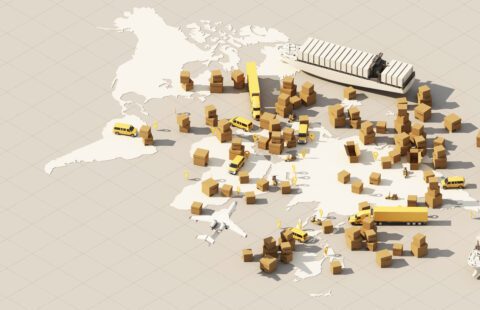Blog
Harnessing India’s Potential: Advantages of Establishing it as a Global Manufacturing Hub
In recent years, India has been steadily emerging as a promising contender to become a global manufacturing hub. The combination of its vast market potential, skilled workforce, improving infrastructure, and strategic geographical location has positioned India as an attractive destination for companies looking to diversify their manufacturing operations. In this blog post, we will explore the key advantages that India offers as a global manufacturing hub and why businesses should consider investing in this dynamic market.
Large and Growing Consumer Market
India boasts one of the world’s largest and fastest-growing consumer markets. With a population of over 1.4 billion people, including a burgeoning middle class, the demand for a wide range of products is immense. Setting up manufacturing operations in India provides companies with proximity to this vast customer base, allowing them to tap into the potential of increased sales and market share.
Skilled Workforce
India is renowned for its pool of skilled labor, particularly in fields such as engineering, information technology, and pharmaceuticals. The country’s educational institutions produce a large number of graduates each year, many of whom are equipped with technical and engineering skills. This skilled workforce offers companies a competitive advantage in terms of innovation, quality, and efficiency.
Cost Efficiency
While wage rates in India are relatively lower compared to developed countries, the country’s labor force is still skilled and productive. This cost advantage, coupled with the availability of a large and diverse talent pool, makes India an attractive destination for companies looking to optimize their production costs without compromising on quality.
Government Initiatives and Policies
The Indian government has introduced several initiatives and policies aimed at promoting manufacturing and attracting foreign investment. Initiatives like “Make in India” and various sector-specific policies provide incentives such as tax benefits, regulatory support, and streamlined approval processes, making it easier for companies to establish and operate manufacturing facilities in India.
Strategic Geographical Location
India’s strategic location offers easy access to major markets in Asia, the Middle East, and Africa. Its well-connected ports and improving infrastructure make it a logistical gateway for both imports of raw materials and exports of finished products.
Evolving Infrastructure
India has been investing significantly in upgrading its infrastructure, including roads, ports, airports, and industrial parks. These improvements enhance supply chain efficiency and reduce logistical challenges, making it more appealing for companies to set up manufacturing bases in the country.
Diverse Industry Potential
India’s manufacturing capabilities span various industries, including automotive, electronics, textiles, pharmaceuticals, and more. This diversity allows companies to find suitable ecosystems for their specific manufacturing needs.
Supportive Ecosystem
Over the years, India has developed a robust ecosystem of suppliers, manufacturers, and service providers, supporting various stages of the production process. This ecosystem fosters collaboration, innovation, and efficiency across industries.
Conclusion
India’s journey towards becoming a global manufacturing hub is backed by a combination of advantageous factors that make it an appealing destination for businesses seeking to diversify their manufacturing operations. The country’s large consumer market, skilled workforce, cost efficiency, government initiatives, strategic location, improving infrastructure, and diverse industry potential all contribute to its attractiveness. As companies continue to adapt to changing global dynamics, India’s role as a vital player in the manufacturing landscape is set to grow, offering both economic benefits and opportunities for growth and innovation.


